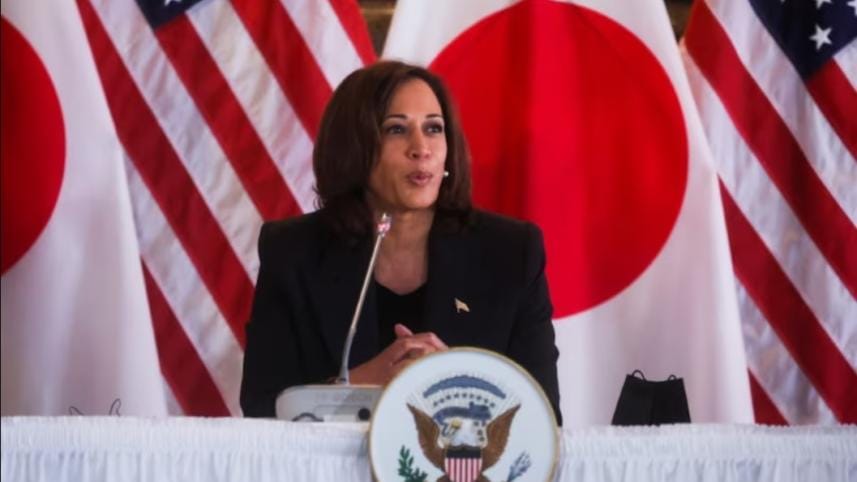Japan firms see Harris presidency as better for business than Trump

More Japanese companies believe a Kamala Harris presidency in the US would be better for their businesses than a second Donald Trump administration, a Reuters survey showed on Thursday, reflecting the respondents concerns about protectionism and policy unpredictability.
The outcome of November's US presidential election is being closely watched by countries around the world. But Japan is a close ally of Washington, with tens of thousands of US troops stationed there, and its businesses would feel the impact of a renewed US-China trade war since both are among its top trading partners.
Some 43 percent of Japanese firms said they preferred Harris in light of their corporate strategies and business plans while 8 percent picked Trump.
A total of 46 percent said either candidate would be fine, with the remaining 3 percent saying they preferred neither.
"There is a possibility that trade war, economic friction and security threats will be brought about under another Trump administration, forcing us to change our business strategy," a manager at a ceramics manufacturer wrote in the survey.
Japan's relations with the Trump administration were at times strained by his demands for more payments towards military assistance and by trade tensions.
With Harris, "we can expect current policies to be maintained by and large. That would give us better visibility into the future," an official at a chemicals firm said.
Asked what change will likely be necessary under a Trump administration, 34 percent said their foreign exchange strategy would need to be reviewed, while 28 percent said their supply chains would be realigned and 21 percent said they would reduce their China operations.
Trump has floated the idea of a 10 percent universal tariff on US imports, which could disrupt international markets, and a tariff of at least 50 percent on Chinese goods.
Nikkei Research reached out to 506 companies from July 31 to Aug. 9 on behalf of Reuters for the survey, with 243 firms responding.
CHINA SLOWDOWN
Regardless of who wins the US election, 13 percent of Japanese companies are considering reducing operations in China, while 3 percent are looking into expanding their businesses, with 47 percent planning to maintain their current exposure, the survey showed.



 For all latest news, follow The Daily Star's Google News channel.
For all latest news, follow The Daily Star's Google News channel.
Comments